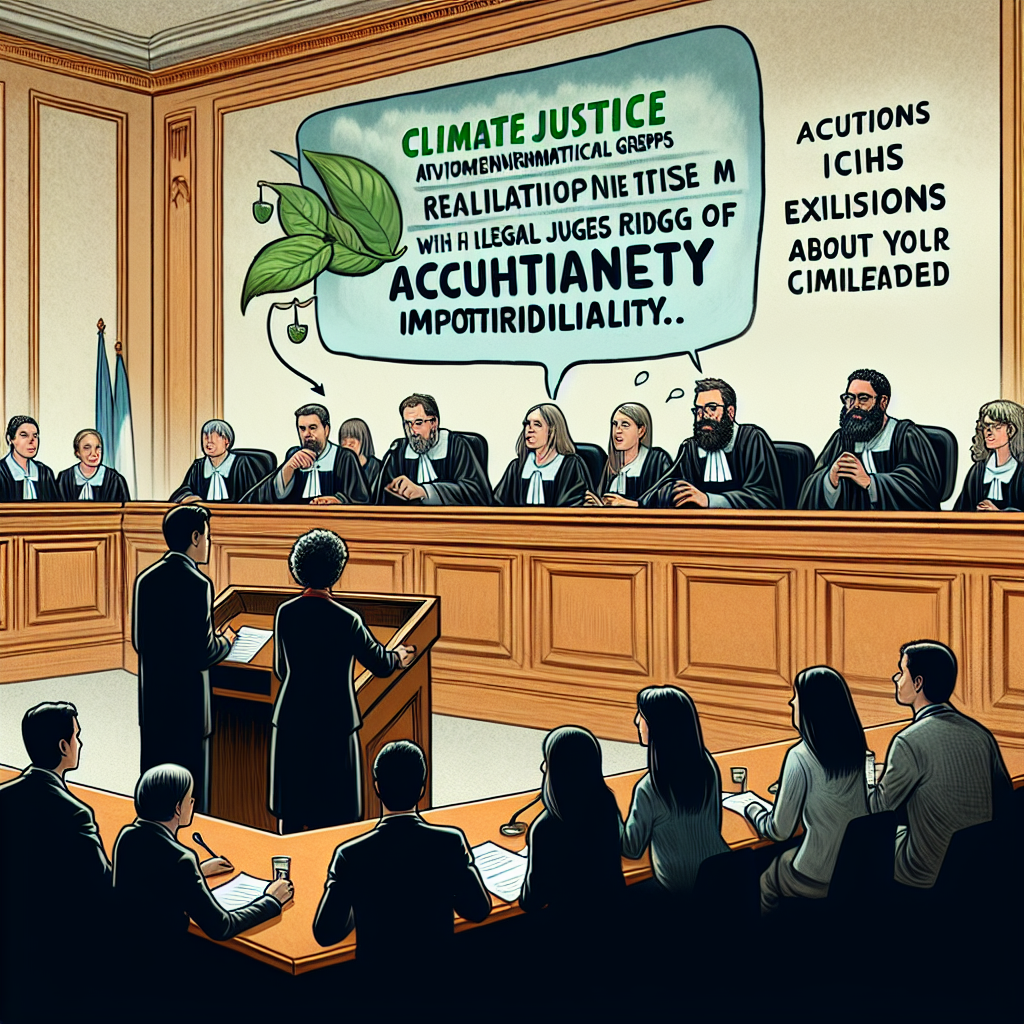.
A controversial judicial advocacy organization, the Climate Judiciary Project (CJP), has been under scrutiny for its connections to left-wing nonprofits and its involvement in climate change litigation. Despite publicly downplaying these connections, a Fox News Digital review has found that CJP continues to work closely with judges and experts involved in climate litigation.
The Environmental Law Institute (ELI) created CJP in 2018, with the goal of providing “reliable, up-to-date information” about climate change litigation. However, the project’s reach has extended beyond just providing information, as it has worked with various state and federal courts, including powerful appellate courts, and has been involved in high-profile litigation against the oil industry.
In response to criticism, CJP President Jordan Diamond wrote a letter to The Wall Street Journal stating that the organization does not participate in litigation, support or coordinate with any parties in litigation, or advise judges on how they should rule in any case. However, a closer look at the project’s curriculum and the individuals involved reveals a different story.
Princeton University professor Michael Oppenheimer, who has a long history of filing climate-related amicus briefs, contributed to the CJP curriculum and presented at a Ninth Circuit Judicial Conference in 2022. Similarly, Robin Kundis Craig, a professor at the University of Utah’s Law School, wrote a module for CJP and has also filed several amicus briefs in court cases.
One example of the close ties between CJP and judges involved in climate litigation is Justice Mark Recktenwald, who quietly disclosed last year that he presented for an April course in collaboration with CJP. Recktenwald also co-presented at a December 2022 National Judicial College webinar sponsored by CJP and co-presented with Professor Robert DeConto at a National Judicial College seminar in 2023.
In October 2023, Recktenwald’s Hawaii Supreme Court denied an appeal from oil companies to dismiss a climate misinformation suit. Craig also filed an amicus in Hawaii state court in July 2022, where an order was signed by Judge Jeffrey Crabtree, a member of the National Judicial College Curriculum Development Committee.
These connections raise questions about the impartiality of judges involved in climate litigation and the influence of CJP on the judicial system. As climate change litigation continues to be a contentious issue, the involvement of CJP and its ties to judges and experts involved in these cases could have a significant impact on the outcome of these lawsuits.

